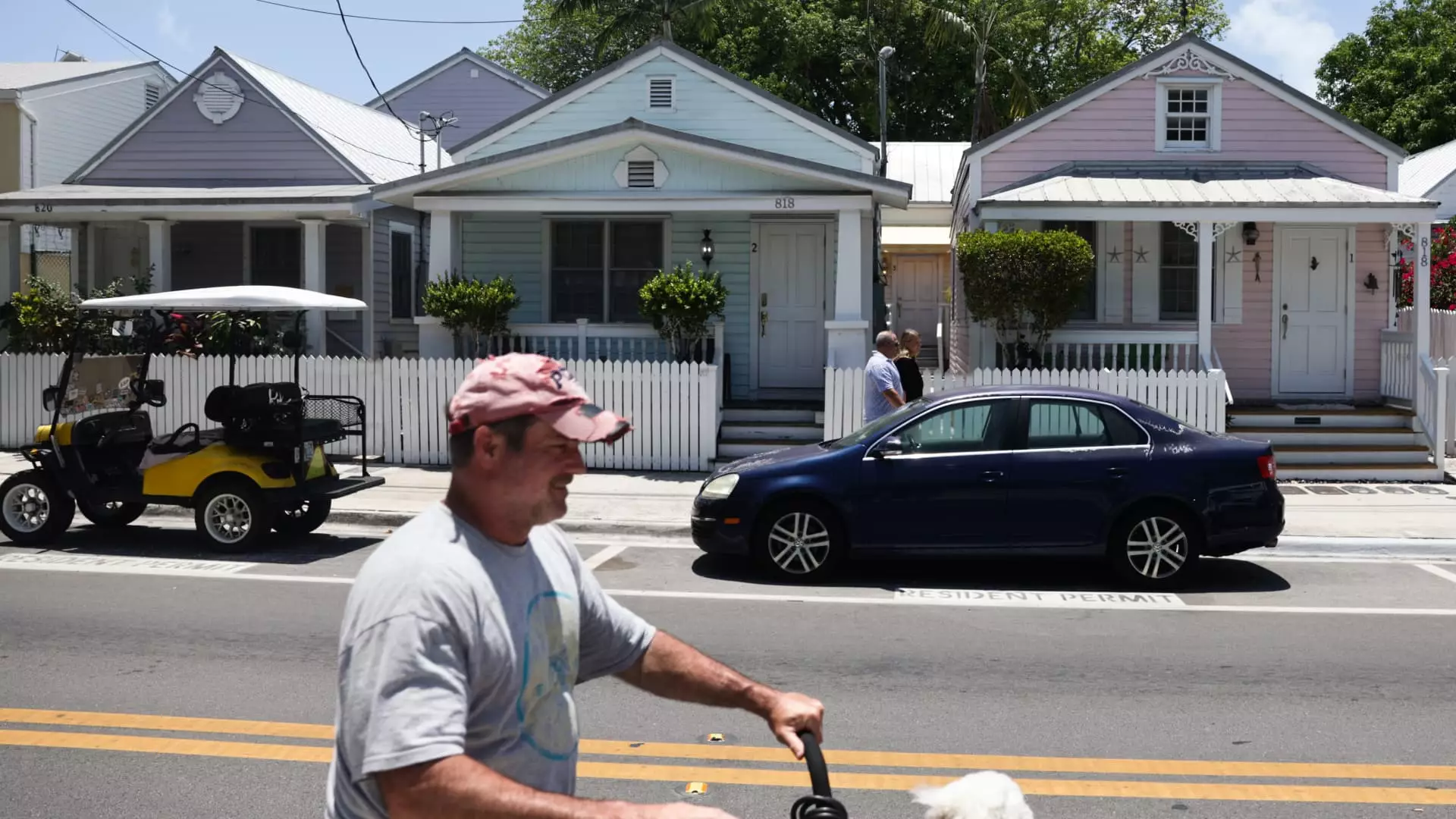The housing market in America is facing a crisis with tight supply, lack of affordable homes, and high mortgage rates. The situation differs from state to state, making it crucial for businesses to consider the local residential real estate market when deciding on their location. CNBC includes the housing market as part of the Economy category in America’s Top States for Business rankings. States are evaluated based on affordability, value, price appreciation, seller gains, inventory, housing starts, foreclosure activity, and underwater mortgages.
In Delaware, housing affordability is average, but low property taxes significantly boost the housing market. Delaware homeowners benefit from an effective tax rate of less than half a percent, which is the fourth-lowest in the country. With a median sales price of $360,700 and an Economy Rank of No. 10, Delaware offers a good balance of affordability and value.
Indiana offers a unique combination of affordability with low property taxes, healthy price appreciation, and attractive prices for homebuyers. Despite tight inventory, Indiana’s housing market remains appealing with a median sales price of $265,300 and an Economy Rank of No. 19.
Home inventories are growing in Georgia, contributing to better affordability. The state experiences active housing construction, and price appreciation remains healthy. With a median sales price of $385,600 and an Economy Rank of No. 7, Georgia provides a promising housing market.
Although Tennessee offers some of the lowest property taxes in the country, affordability remains a concern. New laws aim to encourage more affordable housing options in multifamily units, while inventory growth in the single-family market moderates price gains. Tennessee boasts an Economy Rank of No. 3, with a median sales price of $393,000.
Nevada’s housing market is historically volatile, but manageable inventory and active construction help stabilize prices. Although affordability is challenging, recent price moderation benefits buyers. With a median sales price of $458,300 and an Economy Rank of No. 8, Nevada offers a mixed housing market.
Home prices surged in New Jersey, reflecting a vibrant housing market. Affordability could be better, but it aligns with median income levels. However, high property taxes and foreclosure rates pose challenges. With a median sales price of $532,400 and an Economy Rank of No. 17, New Jersey’s housing market shows promise and obstacles.
North Carolina experiences robust construction activity, tight inventory, and strong price appreciation. Reasonable property taxes contribute to the state’s rapid growth. With a median sales price of $383,700 and an Economy Rank of No. 4, North Carolina presents a competitive housing market.
Arizona sellers benefit from decent gains, despite expanding home inventories. Strong construction activity and healthy home equity offset affordability concerns. With a median sales price of $450,800 and an Economy Rank of No. 5, Arizona offers appealing housing market conditions.
South Carolina sees rising home prices, relatively affordable housing, and increased construction activity. Low property taxes are a positive factor, yet challenges like home equity and foreclosures persist. With a median sales price of $387,700 and an Economy Rank of No. 12, South Carolina’s housing market shows potential for growth.
Florida’s housing market is complex, with appreciating home values and active construction to meet demand. Property taxes help address affordability challenges, but rising foreclosures, underwater mortgages, and climate risks remain concerns. With a strong Economy Rank, Florida balances market dynamics that impact its real estate sector.
Overall, the 2024 housing market overview across different states reveals a mix of opportunities and challenges, shaping the residential real estate landscape in America. Buyers, sellers, businesses, and policymakers must navigate these complexities to make informed decisions in the ever-evolving housing market.


Leave a Reply